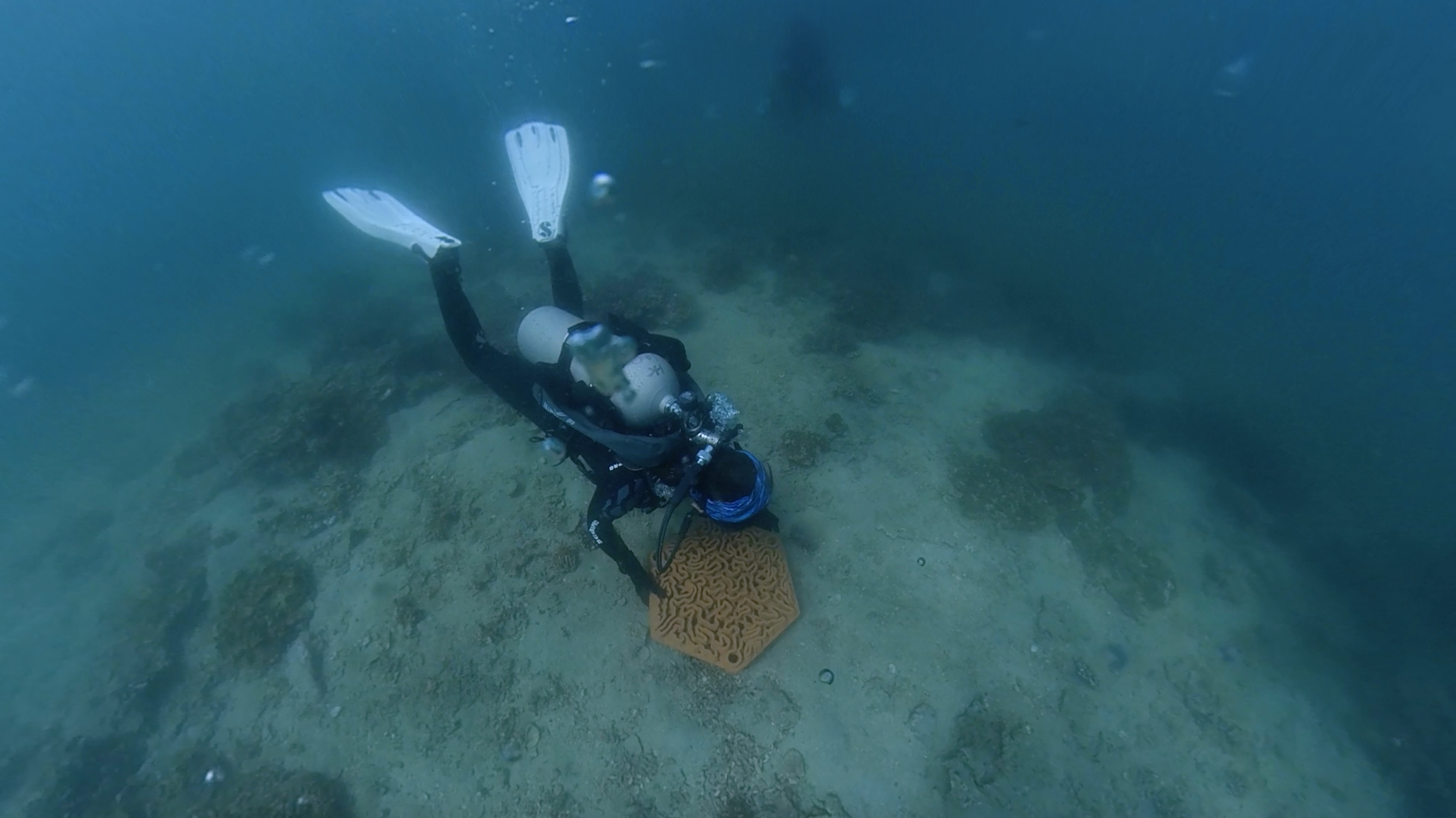Student Sharing
Student Sharing
Vriko Yu
PhD student
The Faculty stresses on the wellbeing and overall development of its fellow students and is making every effort to help them thrive and fulfil their ambitions.
READ MORE
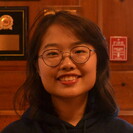
Miss Christina Zhao
BSc alumna
READ MORE
Summer Research Fellowship & Visiting Programme@Yale
Young Scientist Scheme (YSS)
Current PhD student at Oxford
‘Four years at HKU were formative and memorable for me. I was given a lot of flexibilities and opportunities.
Academic-wise, I was able to experience research at as early as sophomore year by participating in Summer Research Fellowship (SRF) programme. In my junior year, I went to Yale for a year as a visiting student. During my time there, I worked on an independent research project with explorative nature. I got to meet with the professor every week to discuss various ideas and techniques related to my project. During the summer, we met weekly for group meetings and journal clubs, where we share our project progress as well as interesting papers. Being in such a scientific community also allowed me to have engaging conversations about research with other group members on a daily basis, which helped me develop my own research interest.’
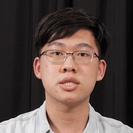
Mr Louis Yu
BSc&MRes student
READ MORE
‘Thanks to many things, I am selected into the Cambridge Track and I am given an offer to St. Catherine’s College in University of Cambridge.
I have intended to take the major of Molecular Biology and Biotechnology at HKU, and the specialty of Genetics at Cambridge.
Why I chose the track?
The Cambridge Track is the only program offered in Hong Kong, that can offer you with 2 degrees from 2 different University in 4 years. This already sounds very attractive to me.
Apart from that, I am personally quite into western culture, having 2 years to study aboard in a World-Class university is the perfect deal for me to fully experience the culture and the community there, broadening my horizon about what’s actually going on outside Hong Kong.
Mostly importantly, it’s about my future. Aside from the peak recognition associated with both University, the mode of teaching and the attitude towards science and research are quite different between HKU and University of Cambridge. Being able to study in both university grants me a chance to compare and evaluate between the two, I believe that this can offer me two very distinct view point towards scientific research, in which it can give me a bigger picture of how science really is, and how people from different part of the world will see scientific research.
What I expect from the track?
Right now I am studying at HKU, I am looking forward to gaining research experience from the Summer Research Fellowship and some other research internship. These experience will be extremely valuable for me when I am doing the Final Year project at Cambridge.
For the Cambridge study, which hasn’t happened yet. I am looking forward to meet all sort of talents there. I am excited to exchange ideas and thoughts with them. You know, University of Cambridge is like a cluster of talents from all over the world. I hope my logical thinking and the way I see science can be well-polished there.
My feeling towards the application process
As the sayings go with, no pains no gains. To be frank, the application process was not easy. You got forms to fill, preliminary tests to take, interviews to attend. But, remember all of these hard work is for the entry ticket to the University of Cambridge. Being able to study at HKU is not easy already, being able to study at both HKU and University of Cambridge is a priceless opportunity.
I did put a lot of effort in the application process. I have to figure out the difficult jargons in the unfamiliar UCAS application; I have to spend time reviewing high school textbooks to prepare for the preliminary tests; I have to spend time doing mock interviews to prepare for the real one. It is hard work, but the payoff is rewarding and priceless.
Most importantly, you are never alone. Your track mates will be there with you, discussing the uncertainties encountered; the faculty of science is very helpful, whenever you encountered a problem, you can always turn to the staff. The staff at Faculty of Science are very kind and helpful, their suggestion and help is always on point to help us out of the plight.
Advice for future cohorts
Be curious and confident! There might be challenges on the way, during the application, but don’t be scared! For a research career, you have to always be curious and confident towards challenges! Don’t be afraid to seek help from your track-mates and the teaching staff.’

Mr Wallace Hui
PhD student
READ MORE
‘Earth Sciences at HKU cover a wide range of research aspects related to our planet and beyond, any themes from ancient Earth to planetary exploration to tectonic events to atmospheric processes, and we have access to a large array of experimental and computational infrastructures.
For my research, I work with my supervisor Dr Kono Lemke in looking at the solvation of geochemically-relevant species under volcanic and atmospheric conditions. Previously, we studied the solvation of ozone, which as we all know, is one of the most important molecules in the Earth’s atmosphere. Using state-of-the-art computational methods, Dr Lemke and I established that the ozone molecules can form stable complexes with water at low temperatures. We have also found that a previously theorized ring structure of ozone can co-exist with water, and this could guide future experimental endeavors. These findings have been published in the Journal of Chemical Physics.
My research experience at HKU has been smooth due to support from Dr Lemke. Graduate research students here are always encouraged to raise questions and discuss with supervisors. My supervisor and I often discuss exciting topics in science and other aspects, new exciting research ideas often come out from these conversations.
The 24/7 round the clock high performance computing facilities by IT service department here forms the backbone of my theoretical-based research. The support team is always helpful and responsive to help resolve any IT-related issues within my research.
HKU supports students doing graduate scientific research with an abundance of resources, you will be encouraged to carry out cutting-edge research, which would equip you with important problem solving and critical thinking skills; it would be an eye-opening experience for ones with the right minds and endurance.’
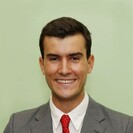
Mr Alejandro Cobo Piekenbrock
MStat alumnus
READ MORE
‘The Master of Statistics of the University of Hong Kong enables students to acquire both a solid understanding of statistical theory and extensive knowledge about its state-of-the-art applications. Thanks to the variety of the courses offered in this programme, I could learn more about new areas in statistics, data analytics and risk management. What I liked most during my MStat studies was their friendly professors and staff who taught me very valuable lessons about statistics and life. Overall, the MStat programme is a truly enriching experience which will help students get one step closer to their career goals.’
Mr Aneesh Jatar
PhD student
READ MORE
‘As a child, mathematics was like an anxietyinducing chore to me. At some point in my early teens, I realised much of my phobia I had for the subject was actually attributed by my incomprehension of it – I did not understand why and what I was doing when facing homework problems. In this sense, the dread was inevitable.
Somehow, rote learning and the lack of understanding how these mathematics formulae work prevented me from tweaking them to solve equations in the necessary way.
So I took it upon myself to probe on my shaky foundation in all ways I could, essentially asking ‘why’ repeatedly like a five-year-old child until I got to the bottom of it. Likely, after a very long time, and with the aid of the Internet and some old textbooks, things began to click for me in a way they never had before.
Thanks to an excellent Mathematics teacher I had in high school, my peers and I were exposed to nonstandard ways of approaching problems under his tutelage which inspired me to look beyond ‘school Mathematics’ and think about the possibility of pursuing ‘doing Mathematics’ as my career.
Being encouraged by him, I enrolled on a university course opened to high school students. The style of thinking the course promoted was exciting. Although it had a huge learning curve and left me with more questions than answers, I was pretty much obsessed with trying to answer them from then on. This led me to continue learning Mathematics at university and eventually led me to the path of postgraduate study.
I have just embarked on my first year of PhD study, and the experience of working with my research group has been very rewarding and encouraging so far. My supervisor Professor Tuen Wai NG has provided me with ample support both personally and professionally, and the questions being prompted by him and my group during presentations and discussion are invaluable to me, as they serve to point out errors in my thinking, as well as deepen my understanding of my studies. Most importantly, outside of academic matters, my family has been incredibly supportive of me.
I think it is too early to say about my future career pathway. Still, I am excited at the prospect of continuing to conduct research in mathematics and teaching the subject in some form, whether that be through staying in academia or otherwise.’

Miss Angela Lam
BSc&LLB student
READ MORE
‘This programme is the first of its kind provided to students in Hong Kong. I was really excited when I found this programme and was really interested in its interdisciplinary courses. For Science, this programme offers me with chances to explore more about Chemistry, equivalent to a Bachelor of Science Student. For law, I could also apply for the Postgraduate Certificate in Laws (PCLL) upon completion of this programme, equivalent to a Bachelor of Laws student.’
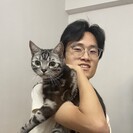
Dr Anyang Ding
PhD alumnus
READ MORE
‘When I was a freshman, I became fascinated by the beauty of rocks and minerals, which led me to choose geology as my undergraduate major. As I explored deeper and deeper into the world of these essential building blocks of our planet, I found that geology is not merely a subject about understanding rocks but of studying the evolution of our 4.5 billion-year-old Earth. I therefore became more open-minded in different research fields and questions, and got interested in the interplay between early life and the environment. To satisfy my thirst for learning and exploring the unknown, I decided to go on to graduate study and dive into the world of geosciences.
It is very challenging to verify or validate the scientific findings in the area of Earth Sciences, as the geological record has been altered or does not even exist anymore. The best we can do is to provide as much evidence and support as possible to back up our interpretation of the observation.
Recently, I have published a paper in Communications Earth & Environment with my supervisor Dr Yiliang LI and our collaborator on solar cycles on the early Earth. To argue the presence of solar cycles and their influence on climate was probably 2,470 million years ago, we reviewed previous studies on the dynamos of main-sequence stars, solar-activity-climate interaction, and microbial ecophysiology in ferruginous water bodies. Dr Li guided me through the whole process, from data analysis to manuscript proofing. He is always there to listen, help, and offer guidance. We have had numerous inspiring conversations – it is he who gave me the confidence to explore any topics that interested me.
As a graduand in the Class of 2023, I am fully aware of the highly competitive job market in the academia. To cope with this, the ability to carry out interdisciplinary research projects is a major calling card. Therefore, I am currently doing research on both environmental elemental cycling (by running simulation) and microbial activity (by lab work), and I also equipped myself by learning versatile research techniques, including computer simulation and microbial culturing, hoping that enhancing interdisciplinary research skills may benefit my future research path.
At this point, I have been trying my best to address small questions, as I believe this will eventually help the scientific community solve the big questions collectively.’
Dr Bovern Suchart Arromrak
PhD alumnus
READ MORE
‘My research aims to understand how simple organisms like bacteria are able to survive in some of the most challenging environments, such as those with nutrient limitations or high salinity; and how these will then affect their interactions with other bacterial species or even large organisms such as oysters – the key is to be flexible!
Among the many advantages that you could have for enrolling into HKU Science’s PhD programme, the most attractive one for me is that HKU offers us with plenty of academic and personal development opportunities, such as scholarships and funding for research, international-level seminars and dialogues, and even chances to go abroad to expand our research skills, knowledge and global networks.
Apart from that, you get to learn from the some of the best minds in the world here in HKU! The academics here (including my supervisor) are always encouraging and motivating their postgraduate students to strive to the top. They are truly supportive. For example recently, our lecturers have started a journal club for postgraduate students, where we get to sit together at a round table as equals, to discuss on scientific papers about its findings, concepts and thoughts. This not only trains us to speak more confidently in front of the masters, but also, guides us to develop a critical thinking mindset for research.
A combination of all the above elevates my game to the next level and moves me towards becoming a better scientist.’
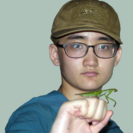
Mr Chester Guo
BSc&MRes Student
READ MORE
‘With various opportunities offered by this programme, I am able to participate in the ecology research work that I have always been interested in. During my first 2 years at HKU, I assisted with research on ants and butterflies. After joining the Global Change and Tropical Conservation lab, I finished my SRF on spiders and have been working as a student RA on a light pollution project in the lab. Through all those research experiences, my understanding of ecology and biodiversity deepened, which made me one step closer to my dream to be a researcher. Besides, by learning from the Grand Masters in a series of master tutorials, I acquired fascinating transdisciplinary knowledge and methods of conducting research. Furthermore, inspired by their passion for scientific research, I hope one day I can devote myself to ecology research and protect the beautiful yet delicate natural world.’
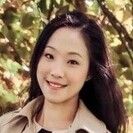
Ms Chi Wing Claire Lee
MSc in Food Industry: Management and Marketing alumna
READ MORE
‘Studying this MSc Programme at HKU was truly a rewarding experience. The course lecturers are very knowledgeable and passionate, who have enlightened me a lot regarding my understanding about the current food industry. This curriculum is also designed in a practical perspective and encompasses a wide variety of topics, from food safety and product development, to marketing and management, which are particularly useful for my current career. In this regard, no matter you are pursuing your career in food industry or interested in exploring more in this area, I would certainly recommend this course based on my amazing experience here.’

Mr Chung Sang Morris Chan
BSc alumnus
READ MORE
‘The overseas research fellowship was an incredibly satisfying, enjoyable, and enlightening experience. I had the chance to work with renowned professors in worldwide universities and witnessed the research workflow firsthand. Taking on responsibility for a mini academic research project, I was involved in every stage of work, from preparation to field studies and experiments, then to data interpretations and write-ups. This experience has greatly enriched my understanding of what it is like to work in academia.
This fellowship is a precious experiential learning opportunity that I would highly recommend to all science students. It is not merely a research project, but a remarkable journey where you can enrich your personal experiences and discover your own potential.’
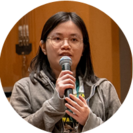
Miss Dorothy Tsang
BSc&MRes student
READ MORE
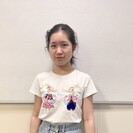
Miss Else Chit Yu Iu
PhD student
READ MORE
‘Like many of my undergraduate fellows, I hardly knew what scientific research was like as a freshman, but I was deeply impressed by the enthusiasm of researchers and their commitment to lifelong learning, which led me to take the initiative and volunteer as a student helper in the laboratory led by Dr Mingfu WANG, whose research focuses on anti-cancer effects of phytochemicals.
My first research experience was very educative. I learned to integrate various experimental techniques in chemical compound analysis, better understand the cell culture process, and was given a chance to perform animal experiments. Besides teaching me an array of techniques, Dr Wang also shared his research experience along the way, and showed me how to run a research laboratory, giving me an idea of what to expect in my scientific career.
After having a taste of scientific research, I was admitted to the Summer Research Fellowship (SRF) Scheme. I was given a chance to conduct an individual research project in Professor Nagendra Prasad SHAH’s laboratory. Under his supervision, I discovered that using germinated wheat flour instead of regular one produced bread with significantly higher GABA content, unleashing the potential to make antihypertensive staple food.
Firing up by these experiences, I even extended my undergraduate study by enrolling in the final year research project (FYP), which trained me to be a logical thinker, thus preparing me for my independent postgraduate research.
Thanks to my current supervisor Dr Chi Bun CHAN, who was my teacher in an undergraduate course about endocrinology, he inspired me to explore the field of metabolism and motivated me to embark on the research journey.
It has been seven months since I joined the PhD programme, and I fully enjoy the moment. Dr Chan’s research group creates a very comfortable and friendly atmosphere for newcomers, and I am instantly connected and developed a sense of belonging in the lab. Dr Chan is the kind of mentor who always initiates thoughtprovoking conversations that stimulate me to seek answers on my own rather than spoon-feed me information. Being around him is like having a supportive friend who always offers comfort and guidance to help me overcome adversity. Besides, I am still dazzled all the time by his logical intelligence!
My ultimate research goal is to unveil the interorgan crosstalk in fatty acid metabolism, which plays an important role in the progression of metabolic myopathy, hepatopathy, and adiposopathy. With the help of collaborators in the chemical and clinical fields, my team could develop novel treatments for these currently incurable diseases and validate the results of the animal model in human clinical studies.’
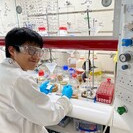
Mr Ho Chi Leung
BSc student
READ MORE
‘The Overseas Research Fellowship experience has not only enriched my understanding of frontier chemistry research but also shaped my future endeavours in advanced chemistry. One of the most invaluable lessons I learned during the research programme was that not every attempt would give favourable outcome, and the process could be frustrating. Still, every trial exemplifies the commitment and tenacity of those who take on this challenging but eventually rewarding task. It was a remarkable journey and pivotal in my academic development.’
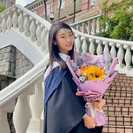
Miss Ho Ting Tiffannie Chan
BSc alumna
READ MORE
‘The Food and Nutritional Science Major has provided me with a comprehensive understanding of human nutrition and food security, essential for shaping my career pathway. Academic knowledge was imparted through diverse activities orchestrated by the teaching team. Beyond traditional lectures, interactive laboratory sessions allowed students to explore diverse topics, including food chemistry. This helped me acquire technical skills and enhanced my communication and presentation abilities—both vital in the workplace. Through collaborative group presentations and debates, I developed confidence in public speaking and learned to articulate my ideas logically. ’
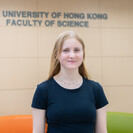
Miss Kornelia Piosik
BSc student
READ MORE
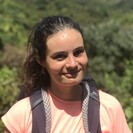
Dr Pauline Dufour
PhD alumna
READ MORE
‘I have always loved animals; I just did not know how to make it my lifetime career. Interested in biology, I thought that I wanted to become a veterinarian, but after joining university, I realised what I truly liked was actually called ‘ecology’.
During the pursuit of my master’s degree in Paris, I started to be captivated by conservation physiology, an emerging field which offers a more dynamic approach in respect to climate change when compared to conventional conservation measures. The different research opportunities I had during that time played a big part in shaping my research direction and motivated me to do a PhD.
I have always loved forensic science as portrayed in fictions or dramas, but I had never connected it to a potential career in conservation, until early 2017 when I moved to Laos, regularly observing ostriches, monkeys, eagles, iguanas, or crocodile eggs in wildlife market – some of which are not even native species to Asia!
I embarked on my PhD journey during the same year, keeping wildlife trade research in the back of my head. My research is nested into a broad field of wildlife conservation, with a primary interest in conservation physiology.
I investigate the physiological responses of diurnal and nocturnal ectotherms to climate change, with a particular interest in lizards. Besides, I have also developed a project about the trade of tokay geckos, both for traditional medicine and pet trades.
Being exposed to the Conservation Forensics Lab at the School of Biological Sciences, I developed interests and skills from many passionate ecologists, for which I am very grateful.
My supervisor, Dr Timothy BONEBRAKE, has played a crucial role in shaping the scientist I have become, by granting me his trust from the start and allowing me to develop my ideas at my own pace. I am very grateful for the opportunities and advice I received from him over the years, even during the most stressful parts of this journey.
I was also influenced by other scientists such as Dr Caroline DINGLE, the Director of the Conservation Forensics Lab. She always welcomed my questions, whether scientific or about student struggles. As the founder of the Women in Science at HKU, she also championed many of my peers and myself.
I would like to dig deeper into the topics I have based my research on, to address ecological and societal issues. The more I learn about the science of climate change, the more I see the need for societal change and human adaptations. I cannot imagine having a job that does not touch on these issues. I am looking forward to building my career on this expertise and experience, and to take part in creating a more informed, self-sufficient, and resilient society.’
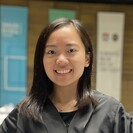
Miss Qin Han Teo
PhD student
READ MORE
‘As a kid, I was often fascinated by the reaction and interaction between chemicals, so I operated a tiny laboratory to do my silly experiments at home, which kindled my passion and interest in the realm of chemistry.
I am a firm believer in chemistry and think that its proper applications via technology in various fields such as medicine, agriculture, and food industry shall be the legacy we leave to our future generations. Being able to be a part of this process gives me a great sense of achievement and pride.
My research focuses on making molecules with ‘seven-membered rings’, one of the many kinds of bioactive natural structures that chemists have always been fascinated with and hope to synthesise them to serve as a lead compound for drug discovery and advance our understanding of the natural world. It is one of the many paths I am attempting to explore. In the long run, I hope my work will contribute back to society and help shape the world into a better place.
Nevertheless, research funding is always a challenge. Apart from financial aid provided by my scholarship, I am grateful that I also received extra funding to support my research, and the level of support is sufficient for buying items related to my thesis research, procurement of research materials, books, equipment, publication fees, and editing service.
The transition from undergraduate study to postgraduate research is also one of the bottlenecks. The most important fixed goal you can set during your undergraduate study is the date for your graduation. But as a postgraduate, your experimental plan could be changed anytime if the current one does not work. I manage to overcome it with the help of my supervisor and lab mates. I am grateful for the opportunity to work with my current supervisor, Professor Pauline CHIU, who always makes sure that I am on the right track and actively gives me feedback during our weekly meetings, which helps plan subsequent experiments and work. And thanks to my lab mates, who are from diverse backgrounds, eager to share different experiences with me all the time.
I also do my reflections and rethinking from time to time, which is an important process to lead myself and facilitate a more profound way of learning.’
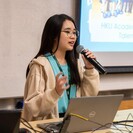
Miss Regina Wong
BSc student
READ MORE
‘HKU’s flexible curriculum gave me the freedom to explore my interests in my first year, allowing me to try out different introductory courses before deciding on my major. This helped me discover my passion for Food and Nutritional Science. The university also encourages students to pursue a second major or minor, so I chose Kinesiology, which complemented my major and offered hands-on lab experiences. Additionally, I fulfilled my dream of learning Japanese as a second minor. The diverse elective options and collaborative learning environment truly enriched my university experience and personal growth.
I was grateful to join the competitive UBC Food Security and Sustainable Production Programme, subsidised by HKU’s experiential learning fund. This exclusive capstone allowed me to study abroad, gain hands-on experience on farms, and explore the entire food production chain. The immersive curriculum included farming, cooking, and company visits, broadening my global perspective. Beyond academics, I built life skills, made international friends, and enjoyed Vancouver’s vibrant culture. Experiences like exploring Shannon Falls and Whistler, and simple moments with friends, made my university journey unforgettable. This programme truly enriched my learning and personal growth beyond the classroom.’
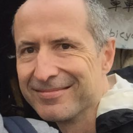
Mr Samuel Ribet
MSc in Environmental Management alumnus
READ MORE
‘The MSc in Environmental Management encompasses a broad range of topics thereby affording an excellent grounding in the environmental field. For this reason, as well as the University of Hong Kong’s reputation for excellence, I selected this master’s degree.
Completing this course has been challenging but, thanks to the challenge as well as the high level of tuition, immensely rewarding. With the knowledge and skills I have acquired and connections I have made I have the confidence to embark on a new chapter in my career incorporating the principles of sustainability into my work and engaging with experts in the fields I have been introduced to.’

Dr Shuangping Li
BSc alumna
READ MORE
'I studied at the University of Hong Kong (HKU) from 2013 to 2017, and those years remain among the most defining chapters of my life. I initially enrolled in actuarial science, but through coursework and exploration, I found myself captivated by the beauty and depth of mathematics. That spark led me to change my major to mathematics, a decision that not only transformed my academic path but eventually shaped my career.
The Department of Mathematics at HKU was where I first experienced the joy of thinking deeply and abstractly. I was fortunate to be taught and mentored by incredible Faculty members, including Professors Zhiwen Zhang, Ngaiming Mok, Wenan Zang, Tuen Wai Ng, and many others. Their teaching, insights, and generosity in mentoring students through summer research programs and capstone projects taught me how to read and learn, how to approach complex problems, and most importantly, how to think like a researcher.
HKU also gave me my first opportunity to experience the world beyond. Through the exchange programme, I spent a semester in my third year at the University of California, Berkeley, where I engaged in reading courses and research projects and gained a glimpse of academic life in the US. That experience expanded my perspective both academically and culturally. It inspired me to apply for PhD programmes in the US. I was fortunate to be admitted to Princeton, where I completed my PhD in applied and computational mathematics. Afterwards, I joined Stanford University as a postdoctoral fellow, and in fall 2025, I will start as an assistant professor at Yale University in the Department of Statistics and Data Science.
Looking back, HKU was not just where I studied; it was where I grew up intellectually. The faculty’s kindness, the friendships I formed, and the intellectual atmosphere all played a critical role in shaping who I am today. I met peers at HKU who have also gone on to pursue PhDs in mathematics, statistics, and related fields. Many of us remain close friends, and the support we received from one another and from faculty continues to echo throughout our careers.
For current students: if you’re passionate about math, science, or research, don’t be afraid to dream boldly. HKU offers an incredible foundation in knowledge, opportunities and mentorship. Whether your future lies in academia, industry, public service, entrepreneurship, or something entirely unexpected something entirely unexpected, a solid grounding in science and mathematics opens many doors. The most fulfilling paths are often the ones where passion and curiosity lead the way.
As for the future, I believe we are entering a new golden age of scientific discovery, driven by the rapid development of AI, data science, and interdisciplinary research. As a researcher in theoretical statistics and probability, I am excited to help bridgethe gap between deep mathematical theory and emerging real-world questions. Mathematics and science remain among our most powerful tools for understanding complexity, navigating uncertainty, and imagining new possibilities for the future.
I’m deeply grateful to HKU for launching me on this journey. I would not be where I am today without the people, the environment, and the education I received there. HKU will always be a part of my story.'
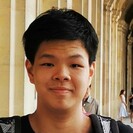
Mr Simba Zou
BSc alumnus
READ MORE
‘HKU Science provides a wide range of undergraduate research opportunities. As a student enthusiastic about pursuing academic research, I benefitted significantly from participating the Summer Research Fellowship programme (SRF).
Last summer, Professor Quentin Parker from the Department of Physics offered me a place in the Laboratory for Space Research in Cyberport, where I spent two months working on a topic related to observational Astronomy – so called Planetary Nebula. Specifically, my project involved accessing data from extensive astronomical databases including the globally leading HASH database set-up by Professor Parker’s group.
Exposure to these research experiences greatly enhanced my problem-solving skills and my theoretical knowledge. Unlike striving for academic excellence in various courses during term-time, conducting actual research requires the ability to integrate multi-disciplinary knowledge such as programming, and to tackle real-life science problems.
As a student who had just finished the first-year study, my relevant knowledge was initially insufficient for conducting research or even understanding the content of background research papers, which was quite frustrating indeed. But after shifting my mindset, I started to devote more efforts by reading some extra reference papers and by “googling” every confusing phrase in the background papers. Perhaps that is the beauty of an early research experience, it encourages students to explore their interests and learn actively out of classrooms.
I also learnt the importance of upholding academic integrity and manual checking on published data. We should be honest to admit the insignificance from the given data, which helps subsequent researchers to rule out same idea and direct them to draw the right conclusions. I also learnt to judge what is significant to be published as from my project.
All in all, this SRF provided me with a treasurable experience and an early taste of conducting scientific research. It definitely strengthened my determination to pursue academic research in my later studies as well as reinvigorating my curiosity in Physics – the study from the fundamental building blocks of the universe, to the gigantic stars and galaxies we see upon the sky.’
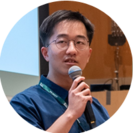
Mr Sum Loo
BSc&MRes student
READ MORE
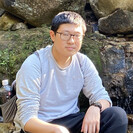
Mr Tim Sui
BSc alumnus
READ MORE
‘As a member of the Faculty’s Young Scientist Scheme, I got the privilege and sponsorship to go to Yale University for visiting study. At Yale, I experienced their graduation ceremony, attended some inspiring seminars, and even got to hear Nobel Laureate Svante Paabo share his insights. In addition, I took a research internship in Professor Gendron’s lab, where I applied mathematical modelling to study plant photoperiodism, which enhanced my systems biology skills and further fuelled my goals.’
Miss Vriko Yu
PhD student
READ MORE
We have always been taught that habitat loss – a known threat to our planet and its biodiversity – occurs gradually over many years. PhD student Vriko YU used to share that belief but was alarmed to witness first-hand a patch of coral off Hoi Ha Wan Marine Park disappear in just two months. Coral reefs are the ‘tropical forests of the sea’, known for their rich biodiversity which provides a highly complex habitat to support whole ecosystems of fish, plants and invertebrates.
‘Books have always said it takes decades for us to destroy the reef,’ Vrkio recalls, ‘but in reality, it can just be gone in the blink of an eye. That is when I started to think about what we can do to mitigate the impacts of climate change.’
Vriko’s love for diving started in her undergraduate studies, where she likened the excitement of finding and identifying the many sea creatures to a game of Pokémon Go. ‘What I like about diving is that I don’t know what I would get to see, like catching Pokémon! Typically when we dive, we go to hotspots which are where corals are.’ This made her realise that in order to continue conserving what we like to see underwater or foods we like to eat, first we need to rebuild the corals. ‘They are the foundation,’ she emphasises. This drive to protect coral reefs led Vriko to start her own social enterprise, archiREEF – an environmental social enterprise offering a one-stop solution for impact changers at corporation or government levels, or even individuals that want to be involved in making a difference.
| ||
The research project is a big success. Virko’s team revisited the site lately and saw lots of marine life around the tiles – one of the cuttlefish moms even laid eggs under the tiles! | Vriko dived into the sea and placed the reef tiles on the sea floor with her own hands. Photo credit: Victor Lau | Vriko’s love for diving started in her undergraduate studies, where she likened the excitement of finding and identifying the many sea creatures to a game of Pokémon Go. ‘ |
Seamlessly blending manmade supports into nature
Vriko explains that traditional reef restoration uses more primitive materials like metal or concrete as a substrate for the coral, which does not mimic the natural environment well. To provide a better alternative, Vriko worked on producing 3D-printed reef tiles as part of her PhD research project at HKU, supervised by Dr David BAKER, Associate Professor at School of Biological Sciences. The reef tiles that mimic the surface of brain corals have seen much success.
They yielded a four times higher survivorship of local ‘super-corals’ – the nickname given to corals capable of growing in the harsh Hong Kong waters – as well as boasted significantly more commercial fishes and a higher biodiversity of coral-associated invertebrates on-site. Most excitingly, Vriko and her team even witnessed an apex predator making its home and laying eggs in the restored coral habitat. ‘The first time I saw the female cuttlefish, it was really exciting! She was huge and looked like a spaceship, but suddenly she flattened herself to catch a prey. The second time we saw her, we thought she was sleeping but when we got closer, we realised she was laying eggs under the tiles!’
Vriko reiterates the ultimate goal of restoration is to bring entire ecosystems back to their healthy states. This one charismatic cuttlefish residing and completing her life cycle in the reef tiles is a symbol of hope that coral reefs can be restored, along with their lost biodiversity recovered.
Growing into the international arena
To further promote coral reef conservation in the region, Vriko is currently serving as a non-official member on the Country and Marine Parks Board of The Government of HKSAR, as well as the Education Committee for WWF, where she shares her expertise on conservation with other stakeholders.
Yet, the protection of coastal reefs is a concern not only locally. Neighbouring regions also have sought Hong Kong’s support in this aspect. Vriko, who additionally serves as the Assistant Director and Eco Diver Instructor for Reef Check Hong Kong (RCHK), provides the necessary training alongside other volunteer instructors to ensure that their international counterparts too, are better equipped with knowledge on reefs and how to monitor their status.
For those of you who wish to follow in Vriko’s footsteps with a postgraduate degree, Vriko is very satisfied with the support that HKU provides PhD students such as herself.
‘I have to thank my supervisor, Dr David BAKER, for giving me the flexibility to decide what I wanted to do. It is not usual for students to have the autonomy to decide what they want to pursue, and have a supervisor fully supportive of them.’ With the additional help of travel grants, she was given opportunities to attend overseas conferences, gaining invaluable experiences outside of Hong Kong. One piece of advice she hopes all students can take is to be proactive. ‘In HKU, anything is accessible if you are willing to be proactive to ask. There are always channels to help!’ (Article by Kengie TANG)
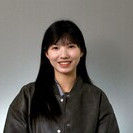
Miss Xin Jiang
BSc student
READ MORE


